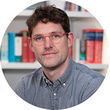- OT
- Life in practice
- Career development
- Take home message from the HOAC
Take home message from the HOAC
From headaches in children and myopia control, to coveted peer review points and networking, there was much to enjoy at the 43rd Hospital Optometrists Annual Conference, explains specialist optometrist, Ellen Messingham

10 November 2017
One of the highlights of my professional calendar is the Hospital Optometrists Annual Conference. This year was no exception. Now in its 43rd year, the event was held at the Queens Hotel in Leeds, and the content and quality was exceptional.
Though not strictly part of the main conference, for many of us who hold our therapeutics qualification the weekend began on the Friday, where we met alongside the UK ophthalmic pharmacy group. It is encouraging to see the increasing number of hospital optometrists who now hold this qualification and to see how the roles of optometrists are evolving at an increasingly accelerated pace since optometrists first gained prescribing rights in 2007. As a whole, we appear to be gaining a confidence in our abilities to manage what in many cases are increasingly complex ocular conditions.
Saturday and Sunday morning both had a full schedule of lectures. I was particularly impressed this year with how topical many of the lectures were, covering areas including headaches in children and myopia control, to name just a few.
Saturday afternoon provided opportunity to gain the coveted peer review points and to pick sessions tailored to your individual needs. From the therapeutics session, my take home message was that the way we manage our patients varies hugely, but that there isn’t always a right or a wrong answer. Head of Visual Electrophysiology and Shared Care Optometry at University Hospitals Bristol, Dr Paul Spry, led a particularly helpful and thought-provoking session on how we ensure ourselves and our teams are adequately trained and equipped to perform well in extended roles as we move on from the GOC core competencies. This is achieved both through in-house training packages and by embracing the additional qualifications available to us.
Sunday morning saw the inaugural Woodward lecture. Clinical lead optometrist at Leicester Royal Infirmary, Martin Rubinstein, gave an informative lecture on the broad range of contact lens devices that have been used or have the potential to be used in the management of ocular diseases, along with an interesting diversion onto the use of Manuka honey to treat blepharitis. He was presented with the Woodward medal by Elizabeth Woodward the wife of the late Geoff Woodward (1934–2013). The medal recognises the vast contributions that Geoff made to the profession of optometry, particularly in the field of hospital optometry and contact lenses.
HOAC is a fantastic opportunity to network with many of the manufacturers and glean information on the latest products on the market, some of which I already have on order. We really are privileged to have access to such a broad spectrum of products such as contact lenses, dry eye treatments and low vision devices. As always, the event proved a great opportunity to restock my pen and post-it notes supplies.
An important aspect of the conference is the opportunity to network with delegates from other departments, and to see how different services operate and are expanding. When I first qualified 17 years ago, many departments were just carrying out what would be considered core optometric roles and we were just starting to dip our toes into expanding roles. Chatting to people from across the county, there are few if any optometrists now not performing extended roles. These roles are increasingly broad and exciting.
As well as a heavy schedule of education there was the opportunity to catch up with other colleagues over a glass (or two) of wine and good food at the conference dinner. Each year, we have a nominated charity and this year the delegates donated over £1000 to the Multiple Sclerosis Society.
I feel that the measure of a good conference is whether your practice is influenced as a result. Having reflected on my practice during the two weeks following the conference, I can see multiple occasions where my actions have been directly affected by what I learned. But I must admit that I have not bought that jar of Manuka honey yet.
Ellen Messingham works as a specialist optometrist for Hull and East Yorkshire Hospitals


Comments (0)
You must be logged in to join the discussion. Log in